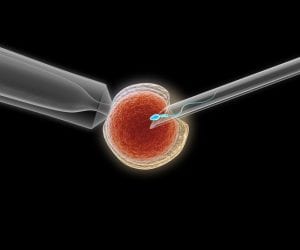Fertility, when it comes to men, is all about the sperm. Men need to be able to produce healthy sperm and get them into the woman’s uterus so that there is a chance to fertilize an egg. There are a lot of things that can go wrong with this process and cause infertility.
What does Male Infertility Mean?
Infertility is defined as a couple’s inability to conceive after twelve consecutive months of intercourse without birth control. Male infertility is the inability to produce sperm or to produce healthy sperm that can fertilize the female egg, Many things can cause this type of inability, such as low sperm counts, inability to have intercourse, or even blockages within the tubes that allow sperm to mix with semen.
Research shows that for couples struggling with fertility, male factor infertility is a contributing factor within 40 percent, and around 15 percent is solely due to male factor infertility. Around half of all male factor infertility cases can be reversed or successfully treated. Treatments for male factor infertility can include lifestyle changes, surgical techniques to retrieve sperm, hormone therapy, and in vitro fertilization (IVF).
What is IVF?
In vitro fertilization (IVF) is the process of fertilization by extracting a woman’s eggs, retrieving a male’s sperm sample, and then manually combining an egg and sperm in a laboratory. This process begins with the female taking daily injections of fertility medications, for several days to weeks, which matures as many eggs as possible inside of her ovaries and helps prepare her uterine lining for pregnancy. After the days or weeks have passed and the egg follicles have grown to a sufficient size, the egg retrieval procedure is done. Once the egg retrieval procedure has been completed, then the egg and sperm are combined within the laboratory. After an embryo(s) has fertilized and grown for several days in an incubator, it is then transferred to the uterus to achieve a pregnancy. If there are any extra embryos that are not used during the first cycle, they can be frozen for later use.
For couples that are struggling with male factor infertility, IVF with intracytoplasmic sperm injection (ICSI) may be the path for you. Intracytoplasmic sperm injection (ICSI) is an advanced laboratory procedure that consists of the injection of a single healthy sperm into an egg to create one or more embryo(s), which are then implanted into a woman’s uterus.
When is ICSI Needed? 
Intracytoplasmic sperm injection (ICSI), is the process in which an embryologist injects a single, healthy sperm into the center of each egg. Therefore, the process only requires one healthy sperm per egg to achieve a fertilized embryo. ICSI helps to avoid the problems related to sperm production, “delivery”, and quality that could prevent conception.
Research shows that ICSI can help to overcome the following fertility problems:
- The male partner produces too few sperm to do artificial insemination
- The sperm may have trouble attaching to the egg
- The sperm may not move normally
- Eggs have not matured by traditional IVF
- A blockage in the male reproductive tract
Sometimes there is no apparent causes for male factor infertility. If you have tried a traditional IVF and not been successful, your fertility doctor may recommend ICSI. Research shows that birth defects after ICSI are rare.





